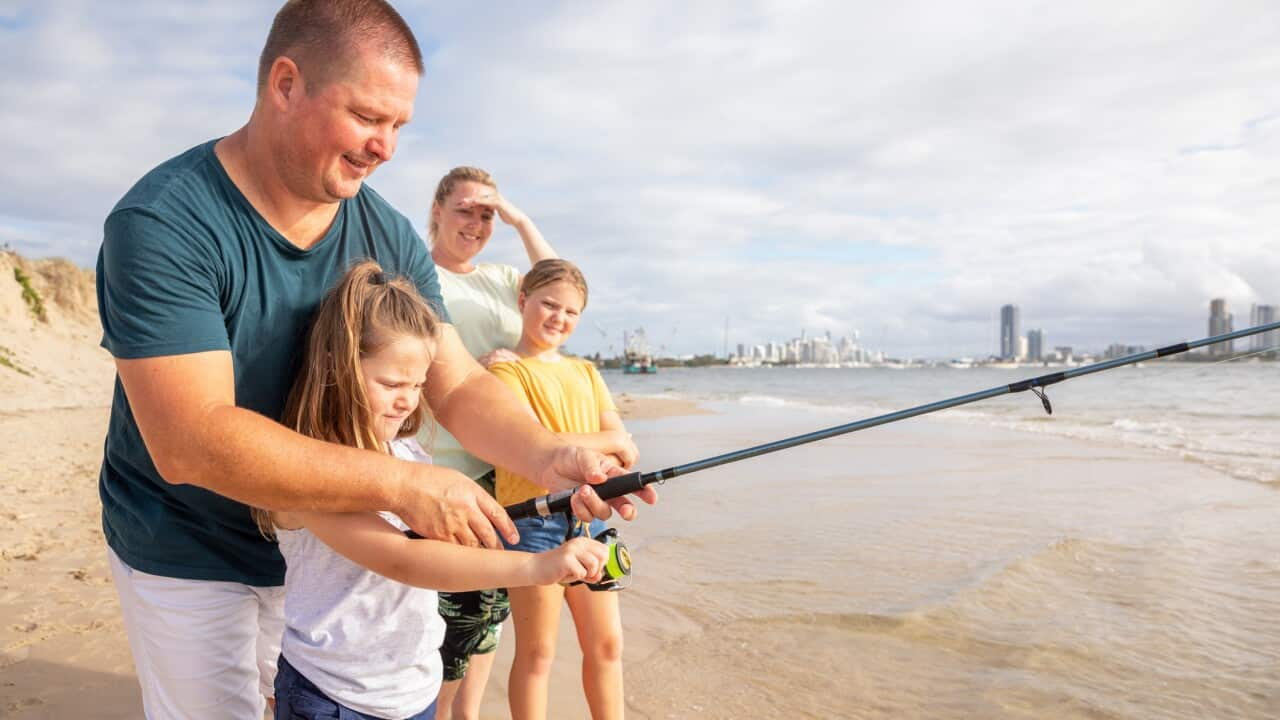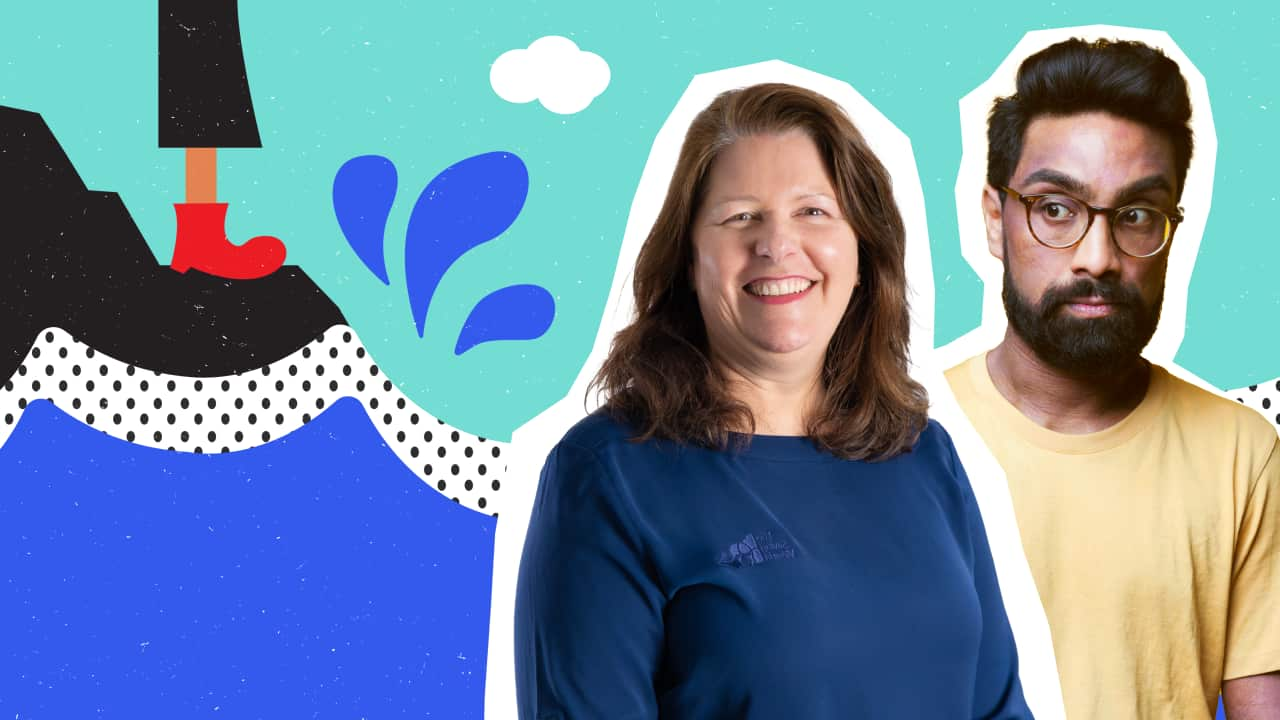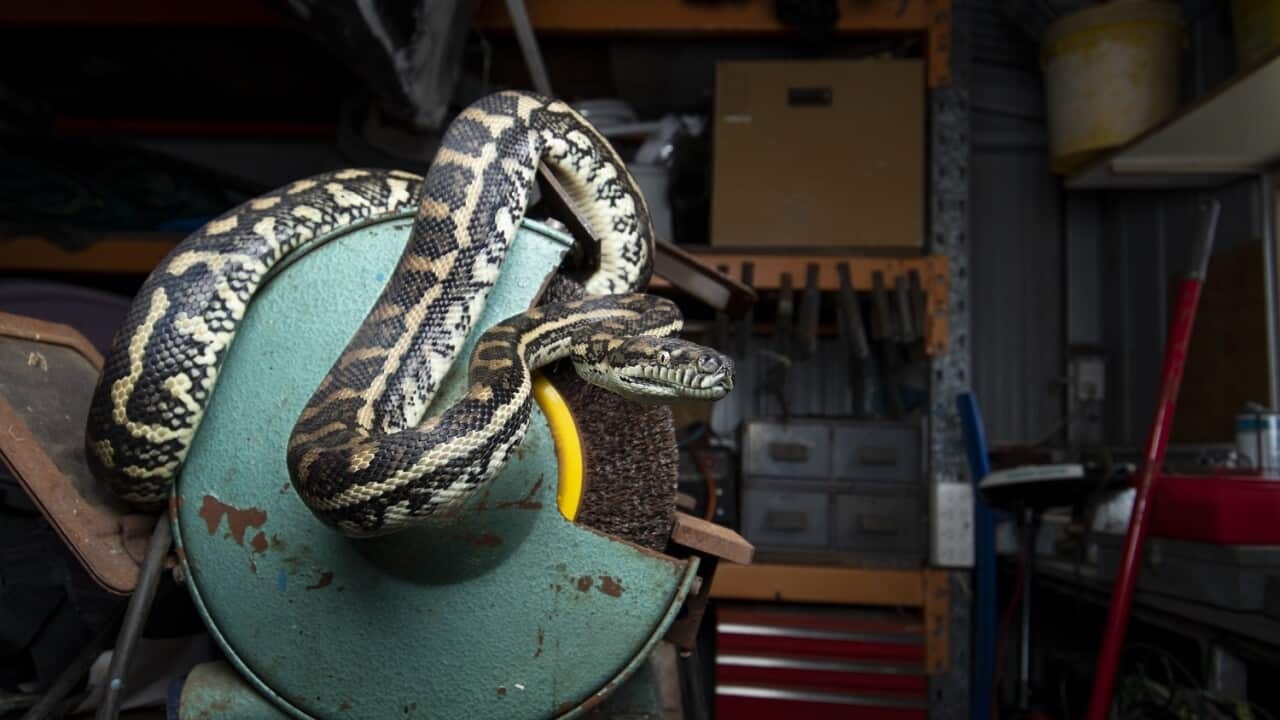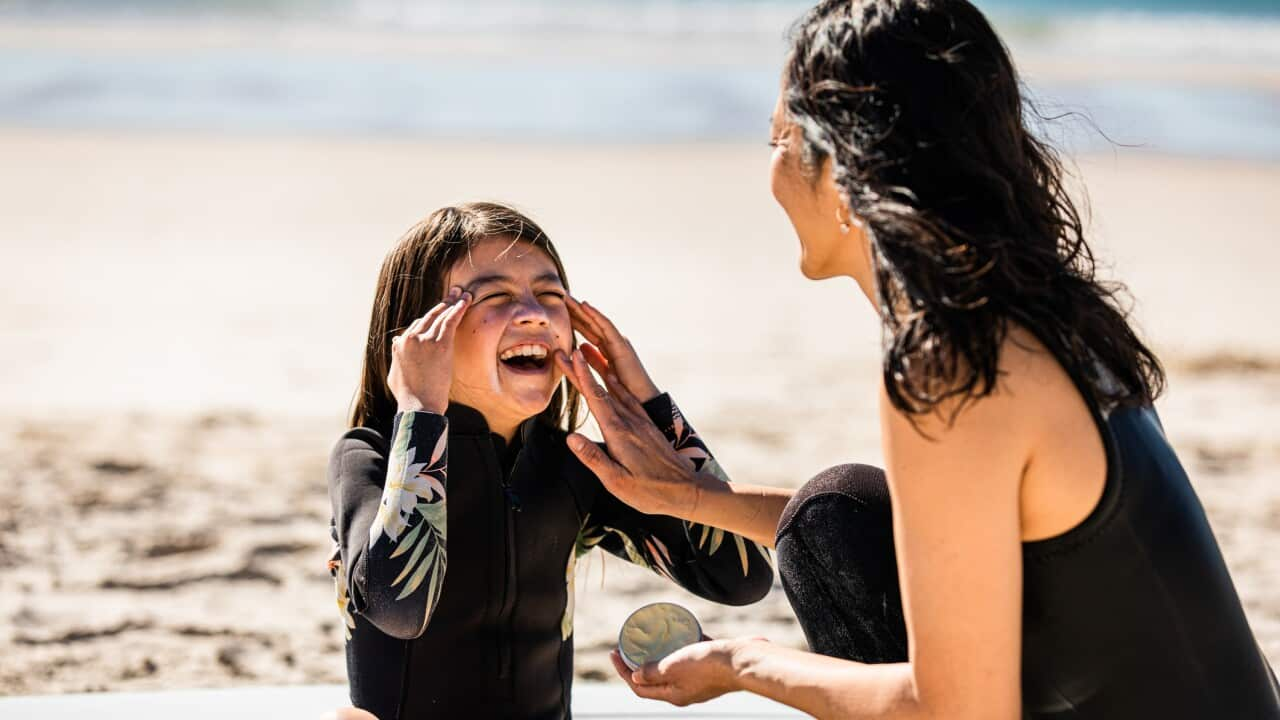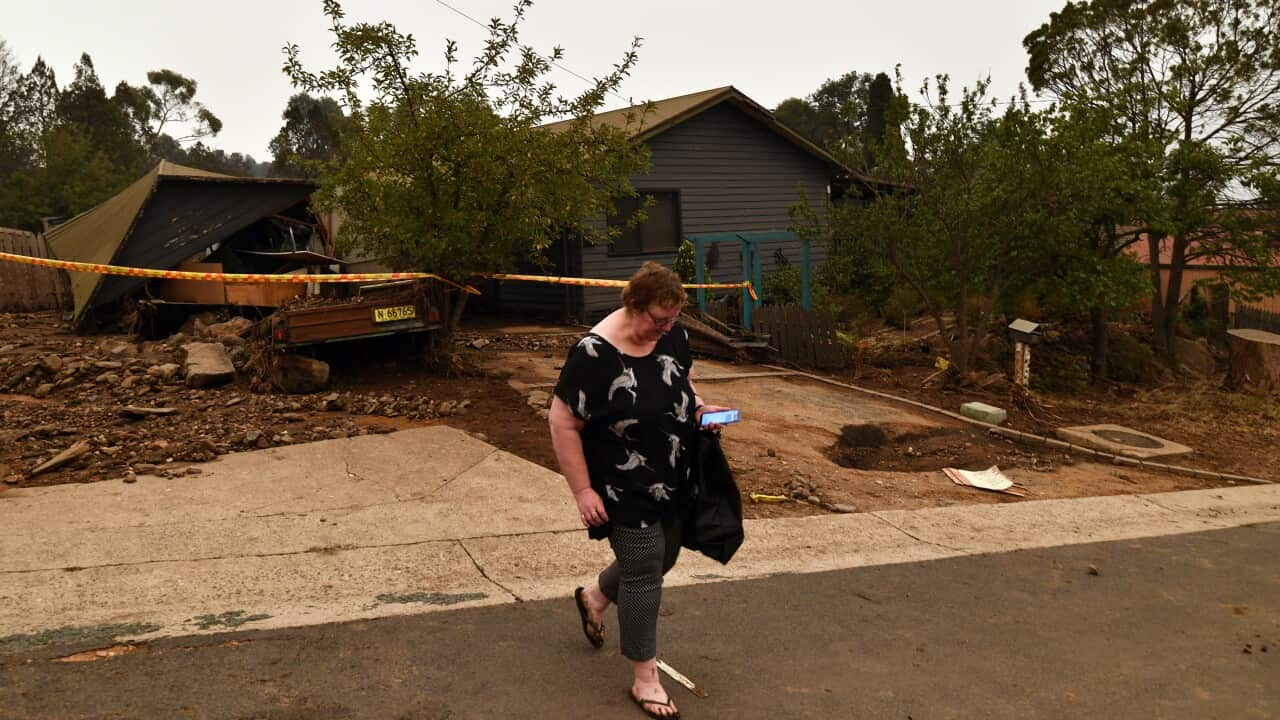Key Points
- ریاستوں اور علاقوں میں تفریحی ماہی گیری کے بارے میں مختلف قوانین ہیں، جن تک آن لائن رسائی حاصل کی جا سکتی ہے، سرکاری ایپس بھی دستیاب ہیں۔
- خلاف ورزیوں پر بھاری جرمانے لاگو ہو سکتے ہیں، اور حفاظتی ضوابط کی پابندی نہ کرنا بھی خطرناک ہو سکتا ہے اور جانیں ضائع ہو سکتی ہیں۔
- اینگلر ہونا آسٹریلوی ثقافت کا حصہ ہے اور ذمہ داری کے ساتھ ماہی گیری اور مشترکہ جگہوں کا احترام کرنے کی توقعات کے ساتھ آتا ہے۔
- آسٹریلیا میں ماہی گیری کتنی مقبول ہے؟
- ہر ریاست اور علاقے میں ماہی گیری کے قوانین کیا ہیں؟
- کیا آپ کو آسٹریلیا میں ماہی گیری کے لائسنس کی ضرورت ہے؟
- فرسٹ نیشنز ماہی گیری کے حقوق کو کیسے تسلیم کیا جاتا ہے؟
- ماہی گیری کے حفاظتی خطرات کیا ہیں؟
- ذمہ داری سے ماہی گیری کا کیا مطلب ہے؟
تفریحی ماہی گیری آسٹریلیا کے پسندیدہ مشاغل میں سے ایک ہے، اور یقیناً ان چند بیرونی سرگرمیوں میں سے ایک ہے جس نے پچھلی دو دہائیوں میں اس کی مقبولیت میں اضافہ کیا ہے۔
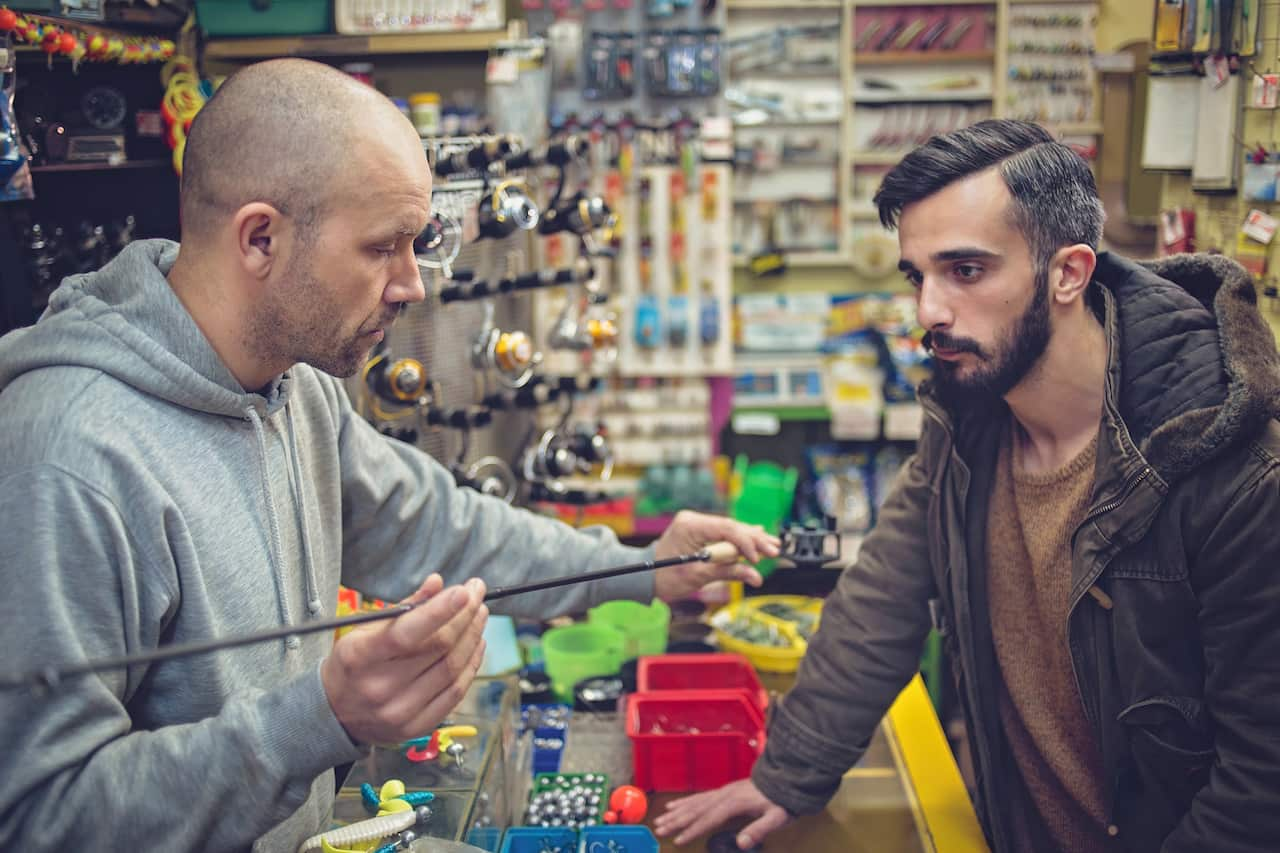
آسٹریلیا میں ماہی گیری کتنی مقبول ہے؟
آسٹریلیا میں تفریحی ماہی گیری لوگوں کا ایک محبوب مشغلہ ہے، اور شاید ان چند بیرونی سرگرمیوں میں سے ایک ہے جس کی مقبولیت پچھلی چند دہائیوں میں بڑھی ہے۔
آسٹریلین حکومت کی جانب سے 2023 میں شائع کردہ ایک وسیع پیمانے پر کی گئی تحقیق سے پتا چلتا ہے کہ ہر سال تقریباً 4.2 ملین بالغ افراد مچھلی پکڑنے جاتے ہیں۔
"آسٹریلیا میں اس طرح کا سروے صرف دو بار کیا گیا ہے،" فشریز سائنسدان اینڈی مور کہتے ہیں، جو قومی سماجی اور اقتصادی سروے آف ریکریشنل فشرز کے مرکزی مصنف ہیں۔
"2001 اور حالیہ سروے کے درمیان دلچسپ بات یہ تھی کہ مچھلی پکڑنے جانے والے لوگوں کی نسبتاً فیصد، جو کہ تقریباً 20 فیصد، یعنی ہر پانچ میں سے ایک شخص ہے، وہ برقرار رہی، اگرچہ ہماری آبادی میں اضافہ ہوا ہے۔"
اینڈی مور کا یہ بھی کہنا ہے کہ ثقافتی اور لسانی لحاظ سے متنوع کمیونٹیز(CALD) کے زیادہ لوگوں نے تفریحی ماہی گیری میں حصہ لینے کے ساتھ آبادی کا تناسب بدل گیا ہے۔ بہت سے لوگوں کے لیے ماہی گیری نسل در نسل چلی جانے والی روایت ہے۔
"اس معاملے میں ، کچھ افراد کے پاس رویات ہیں یعنی ان کے پاس کئی نسلوں کے لوگ یہ سرگرمی کر رہے ہیں، اور اس لیے جب وہ آسٹریلیا آتے ہیں، تو وہ ماہی گیری کی سرگرمی کو جاری رکھتے ہیں۔
"ہمارے سروے سے ایک چیز جو واضح ہوئی وہ یہ تھی کہ اگر آپ مچھلی پکڑنے جاتے ہیں، تو زیادہ امکان ہے کہ آپ نے ماہی گیری کا جو طریقہ دیکھا ہو وہ اپنے بچپن میں دیکھا ہو۔
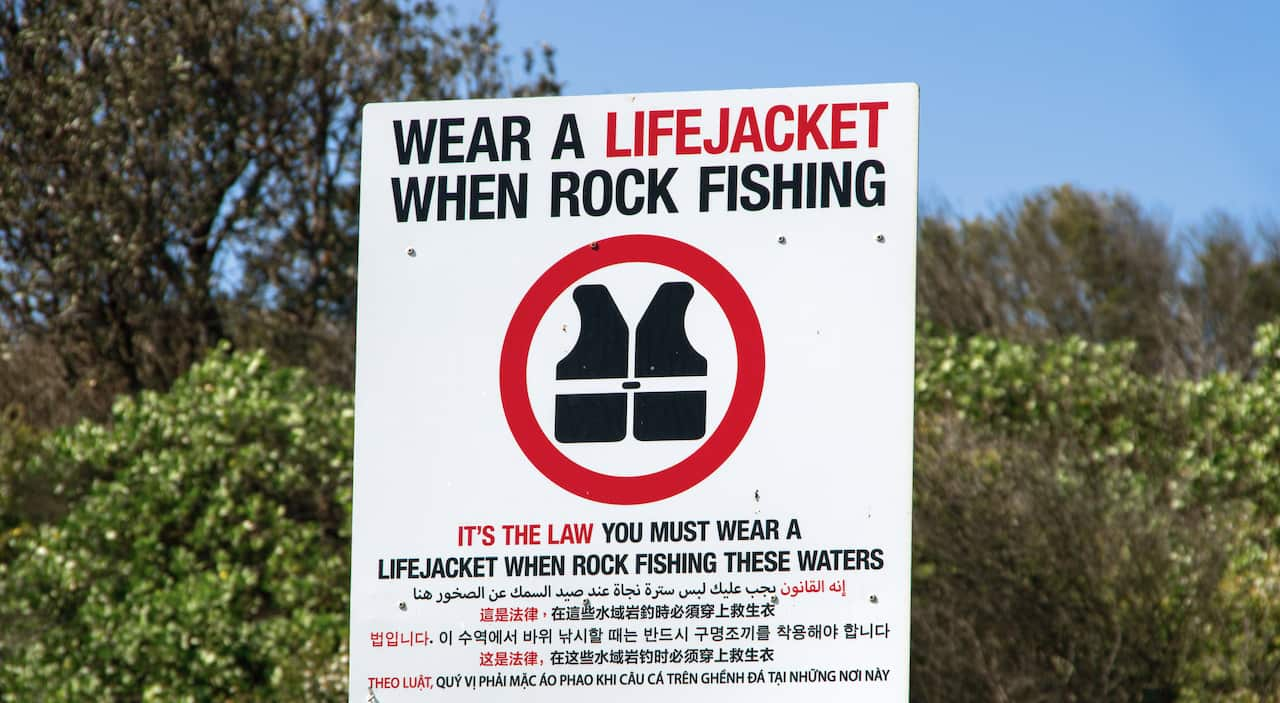
ہر ریاست اور علاقے میں ماہی گیری کے قوانین کیا ہیں؟
اسٹین کانسٹینٹریس نیو ساؤتھ ویلز کی ریکری ایٹیشنل فشنگ الائنس کے صدر ہیں، جو کہ کھیل کے طور پر مچھلی پکڑنے، میٹھے پانی کی مچھلی پکڑنے، نیزے سے مچھلی پکڑنے اور ریاست بھر کے شکاریوں کی نمائندگی کرنے والا ایک نمائندہ ادارہ ہے۔
وہ بیان کرتے ہیں کہ ہر علاقے کی اپنی قوانین اور ضوابط ہیں۔ ان میں شامل ہیں:
- مچھلی پکڑنے کے دوران مچھلی کے سائز اور حجم کے علاوہ کتنی تعداد میں مچھلی پکڑی جا سکتی ہے۔
- - محفوظ نوعیت کے متعلق قوانین۔
- - آپ جو آلات استعمال کر سکتے ہیں ان کی اقسام۔
- - فی شخص کتنی چھڑیاں اور کنڈیاں استعمال کی جاسکتی ہیں۔
- - ممنوعہ چارے۔
ریاست کے اہم نوعیت کے قوانین کی حد سے تجاوز جیسے شدید ماہی گیری جرائم کی سزاؤں میں بھاری جرمانے یا حتیٰ کہ قید بھی شامل ہو سکتی ہے۔
ہر ریاست کے ماہی گیری کے قواعد آن لائن مفت دستیاب ہیں۔ بہت سی ریاستیں مختلف زبانوں میں ترجمہ شدہ سرکاری ایپس بھی فراہم کرتی ہیں۔
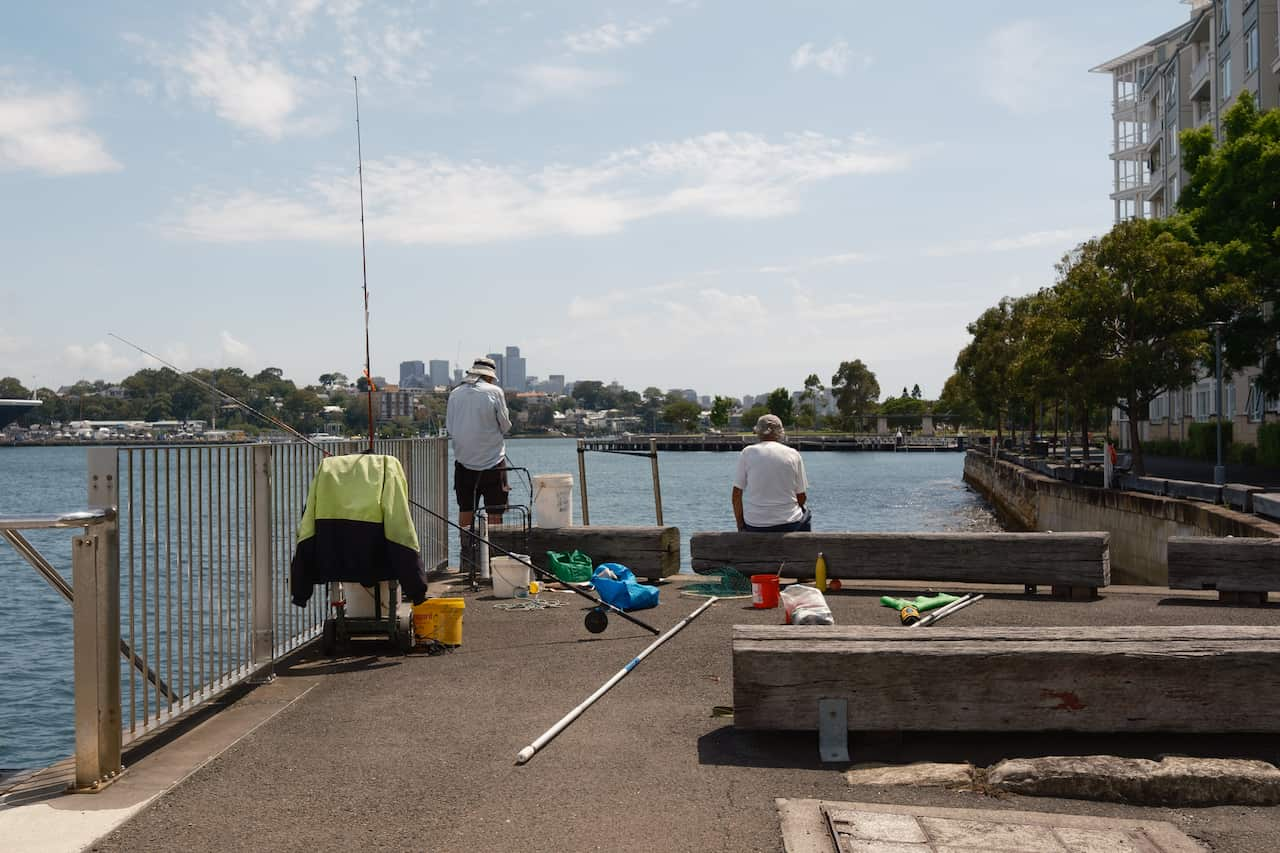
سرکاری ویب سائٹس چیک کریں:
- ناردرن ٹریٹری
- ساوتھ آسٹریلیا
- نیو ساوتھ ویلز
- ویسٹرن آسٹریلیا
- وکٹوریہ
- تسمانیہ
- آسٹریلین کیپیٹل ٹریٹری
- کوئینز لینڈ
جناب کانسٹینٹریس کہتے ہیں کہ ٹیکل دکانیں ایک اور قابل اعتماد رابطہ کی جگہ ہیں، جو مقامی عملی معلومات فراہم کرتی ہیں۔
“چاہے آپ غیر انگریزی بولنے والے پس منظر سے ہوں یا نہ ہوں، آپ ان کے لیے ایک گاہک ہیں۔
مقامی ٹیکل شاپس پر موجود لوگ معلومات کا واقعی ایک اچھا ذریعہ ہیں، وہ ہمیشہ مشغول رہتے ہیں، وہ صبر سے کام لیتے ہیں اور وہ زیادہ تر ماہی گیر بھی ہوتے ہیں۔اسٹین کانسٹینٹریس
کیا آپ کو آسٹریلیا میں ماہی گیری کے لائسنس کی ضرورت ہے؟
تمام ریاستوں میں ماہی گیری کے لئے لائسنس کی ضرورت نہیں ہے۔ مثال کے طور پر، جنوبی آسٹریلیا، کوئنز لینڈ اور ناردرن ٹریٹری کو استثنیٰ حاصل ہے۔ دوسری ریاستوں میں، لائسنس سستے اور حاصل کرنا آسان ہیں۔
دھوکہ دہی سے ہوشیار رہیں: ہمیشہ سرکاری ویب سائٹس کا استعمال کریں۔ وکٹورین فشریز اتھارٹی کے سی ای او ٹریوس ڈولنگ نے خبردار کیا ہے کہ تھرڈ پارٹی ویب سائٹس اصل فیس سے تین گنا تک وصول کر سکتی ہیں۔
مزید جانئے

#50 Let's go fishing! (Med)
“جب آپ کسی ماہی گیری کے لائسنس کے حصول کے لئے گوگل کریں گے، تو آپ کو بہت سی سائٹس ملیں گی۔ یہ تیسری پارٹی کی کمپنیاں ہوتی ہیں اور ان میں سے بہت سی بیرون ملک ہوتی ہیں۔
"آپ کو ایک ماہی گیری لائسنس ملے گا، لیکن آپ کو اس کی تین گنا قیمت ادا کرنی پڑے گی۔ یہ ایک قسم کی دھوکہ دہی ہے اور وہ ان سائٹس کو ایسے بناتے ہیں جیسے یہ کوئی مستند حکومتی سائٹ ہو۔"
یہ یقینی بنانا کہ آپ کا ماہی گیری کا سامان مقامی ضوابط پر پورا اترتا ہے، قومی سطح پر ایک عام تقاضا ہے۔
"مثال کے طور پر، لوگ انٹرنیٹ پر کسی خاص قسم کے جال کو دیکھیں گے۔ لیکن اس حقیقت کا کہ آپ آن لائن اس جال کو خرید سکتے ہیں، یہ نہیں کہتی کہ یہ وکٹوریہ میں استعمال کرنا قانونی ہے،" مسٹر ڈاولنگ نے وضاحت کی۔
فرسٹ نیشنز ماہی گیری کے حقوق کو کیسے تسلیم کیا جاتا ہے؟
فرسٹ نیشنز کے لوگوں کے مچھلی پکڑنے کے حقوق کو ریاستوں اور علاقوں میں مختلف طریقے سے تسلیم کیا جاتا ہے۔ اگر آپ ثقافتی اہمیت کے حامل علاقے میں ماہی گیری کر رہے ہیں تو ، ہمیشہ مقامی قواعد و ضوابط کی جانچ پڑتال کریں اور روایتی حقوق کا احترام کریں۔
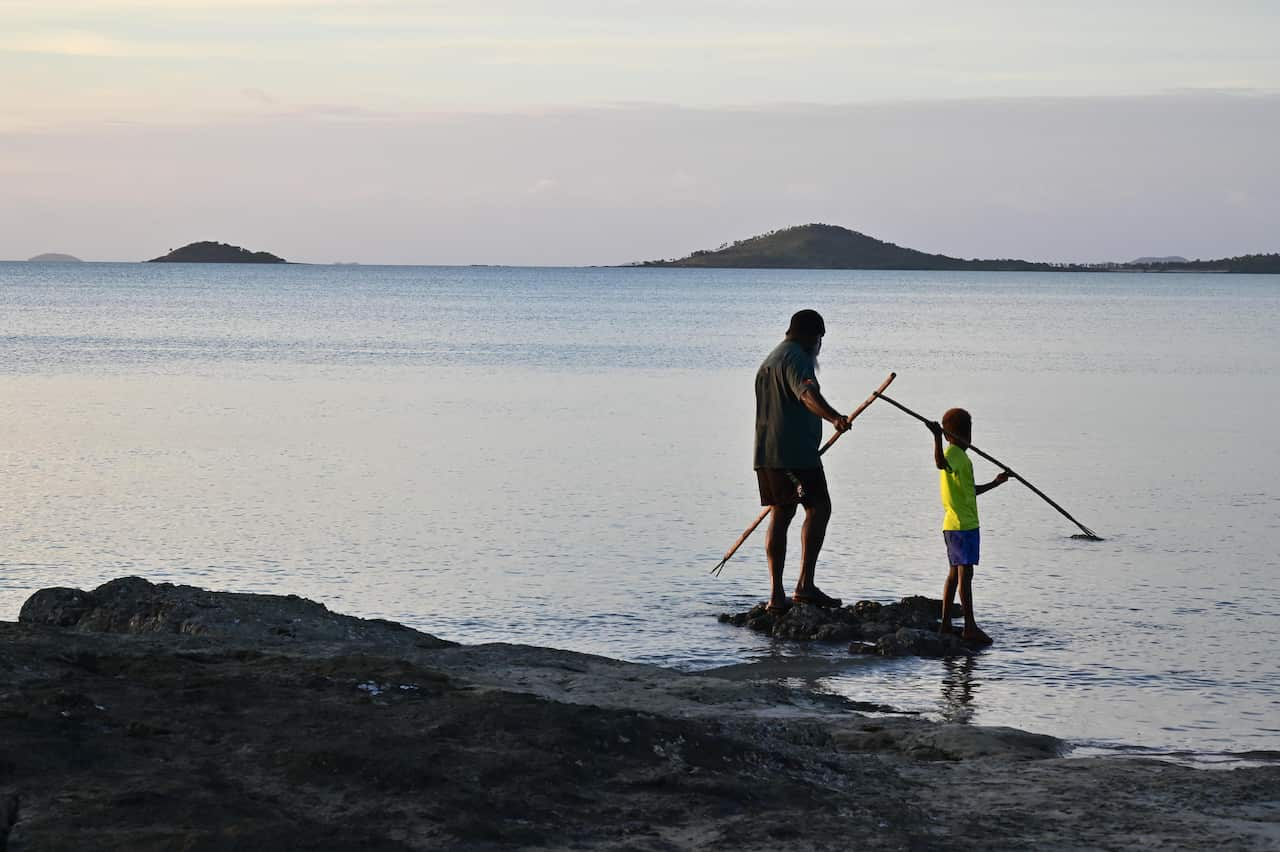
ماہی گیری کے حفاظتی خطرات کیا ہیں؟
محفوظ طریقے سے ماہی گیری کرنا اتنا ہی اہم ہے جتنا کہ قواعد و ضوابط کی پیروی کرنا۔ خاص طور پر چٹانوں پر ماہی گیری آسٹریلیا کے سب سے خطرناک مشغلہ میں سے ایک ہے۔ 2004 سے 2024 کے درمیان، 241 افراد چٹانوں پر ماہی گیری کے دوران ڈوب گئے—جن میں سے نصف سے زیادہ ایشیا میں پیدا ہوئے تھے۔
پچھلے 20 سالوں سے، این ایس ڈبلیو کے تفریحی ماہی گیری اتحاد ایسی کمپینز بنائی ہیں جن کے تحت کوشش کی گئی کہ تارکین وطن پس منظر رکھنے والے افراد کو معلومات فراہم کی جائے ، جن کی ڈوبنے کے اعداد و شمار میں بڑی تعداد ہے
رائل لائف سیونگ کی قومی رپورٹ کے مطابق، متاثرہ افراد کا نصف سے زائد حصہ (56 فیصد) ایشیا میں پیدا ہوا تھا۔
"کوئی ایسا شخص جو اس کھیل میں بالکل نیا ہو، چٹانوں کے قریب چلا جا سکتا ہے اور ممکنہ خطرات سے بالکل بے خبر ماہی گیری شروع کر سکتا ہے۔"
لائف جیکٹ کا استعمال اہم ہے اور یہ زندگی بچانے والا ثابت ہو سکتا ہے، لیکن مسٹر کانسٹینٹریس کا کہنا ہے کہ سب سے بہتر قاعدہ بالکل سادہ ہے: اگر جگہ محفوظ نظر نہیں آتی، تو وہاں ماہی گیری نہ کریں۔
آخر کار، اگر آپ ایک نئے ماہی گیر کے طور پر بہترین مشق کے نکات تلاش کر رہے ہیں، تو ذمہ داری سے ماہی گیری کا مطلب کیا ہے، مسٹر ڈاولنگ کے مطابق سیکھیں۔
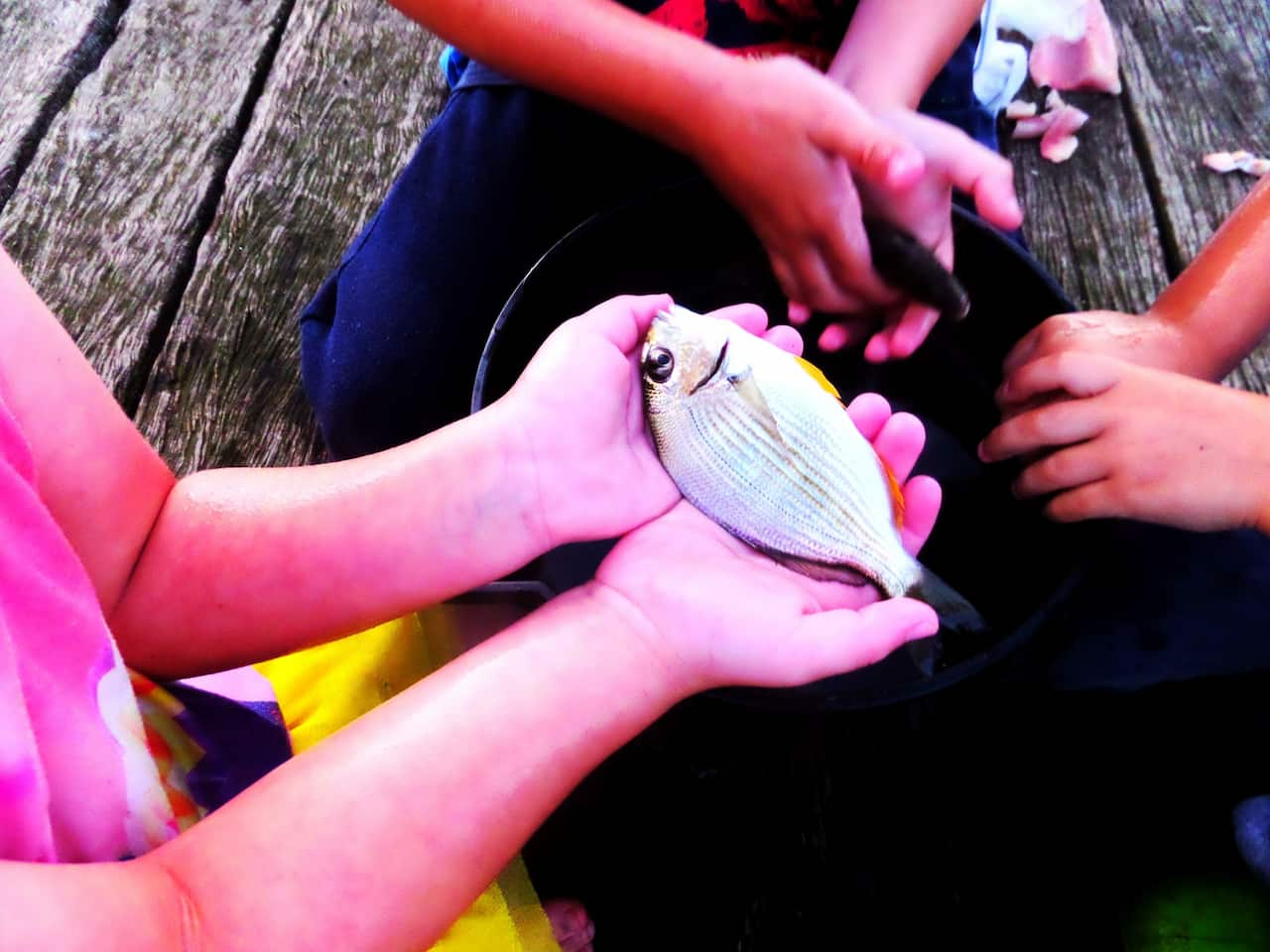
ذمہ دار ماہی گیری کا مطلب کیا ہے؟
ایک ذمہ دار ماہی گیر ہونے کا مطلب ہے:
جب مچھلی کو چھوڑ رہے ہوں تو اسے احتیاط سے سنبھالنا (مثال کے طور پر، اپنے ہاتھوں کو تر کرنا اور مچھلی کو زیادہ دیر تک پانی سے باہر نہ رکھنا)۔
- کسی علاقے سے چارہ لا کر دوسرے علاقے میں مت ڈالیں۔
- کوئی کوڑا پیچھے نہ چھوڑیں۔
- دوسروں اور آئندہ آنے والے زائرین کے لئے جگہ کا احترام کرنا۔
- وکٹورین فشریز اتھارٹی کے ٹریوس ڈولنگ نے اس کا خلاصہ کچھ اس طرح کیا:
“جب آپ ماہی گیری کے لئے جاتے ہیں تو آپ کو یہ سوچنا چاہیے، 'جب میں اگلی بار یہاں واپس آؤں گا، تو یہ جگہ خوبصورت، غیر نقصان زدہ، محفوظ دکھائی دے۔'"
Subscribe to or follow the Australia Explained podcast for more valuable information and tips about settling into your new life in Australia.
Do you have any questions or topic ideas? Send us an email to australiaexplained@sbs.com.au
